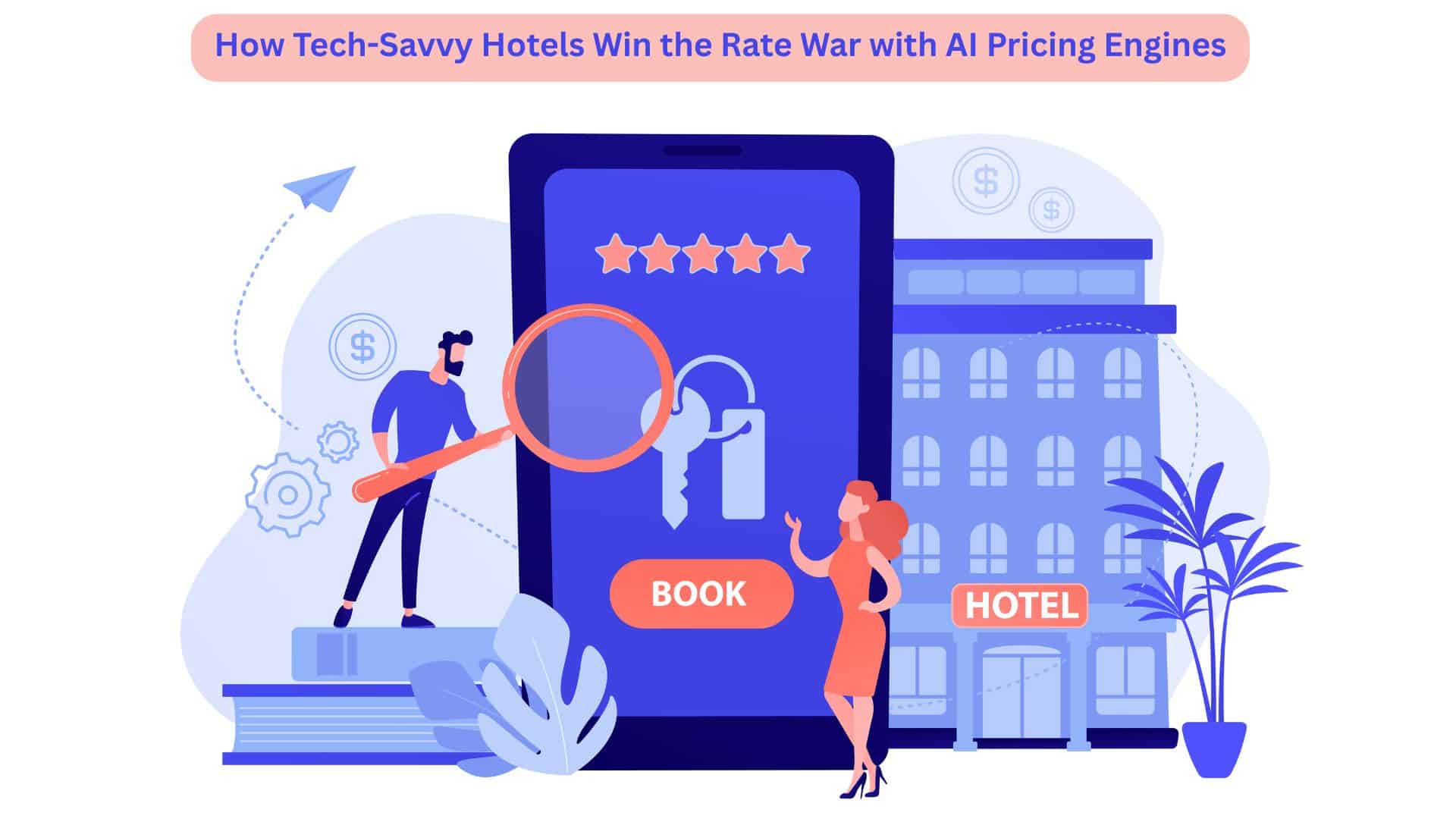In today’s fiercely competitive hospitality industry, pricing can make or break a hotel’s profitability. The rise of digital travel platforms, shifting traveler behaviors, and constant rate fluctuations have made pricing a high-stakes game. But there’s a clear winner emerging in this race—tech-savvy hotels leveraging AI-powered pricing engines.
Let’s explore how modern hotels are turning to smart technology to outprice the competition and increase profitability without compromising guest satisfaction.
1. The Shift to Intelligent Revenue Management Systems (RMS)
Traditional revenue management once relied on manual data entry, fixed rate cards, and educated guesswork. But today’s AI-powered Revenue Management Systems (RMS) are doing much more—turning big data into strategic pricing decisions.
Key Functions of AI-Driven RMS:
- Real-Time Data Processing: AI engines continuously monitor booking patterns, historical trends, weather forecasts, and local events.
- Automated Decision-Making: These systems don’t just suggest prices—they automatically adjust rates across multiple booking platforms based on demand shifts.
- Room Segmentation Optimization: AI algorithms segment guests by behavior, geography, or travel intent, offering tailor-made prices.
This level of automation drastically reduces manual work while increasing accuracy and responsiveness, keeping tech-savvy hotels one step ahead.
2. Competitive Benchmarking: Knowing Your Market Position
Winning the rate war isn’t just about pricing lower—it’s about pricing smarter. With AI tools, hotels can benchmark their rates against direct competitors in real time.
How Benchmarking Works:
- Live Rate Comparison: AI scrapes and analyzes pricing data from OTA platforms (like Booking.com, Expedia, etc.) to monitor competitor moves.
- Rate Positioning Alerts: Hotels get notified when a competitor undercuts their price or changes their strategy.
- Smart Adjustments: Instead of blindly matching lower prices, AI engines use predictive analytics to decide whether it’s worth adjusting or holding firm.
This strategic positioning helps hotels maintain revenue per available room (RevPAR) without engaging in destructive price wars.
3. Dynamic Pricing Models: Real-Time Flexibility is Key
Dynamic pricing isn’t new—but AI takes it to an entirely new level by factoring in real-time variables and micro-trends that humans might overlook.
Core Components of AI-Powered Dynamic Pricing:
- Demand Forecasting: AI predicts high-demand periods (festivals, conferences, long weekends) and adjusts prices well in advance.
- Personalized Pricing: Depending on a user’s location, device, or booking history, different rates may be shown dynamically.
- Last-Minute Yielding: AI optimizes last-minute pricing by balancing occupancy with profitability, avoiding unsold rooms without steep discounts.
Dynamic pricing also ensures hotels capture every revenue opportunity by adjusting room rates 24/7—even while your team is offline.
4. Benefits Beyond Pricing: Enhanced Guest Experience and Operational Efficiency
AI doesn’t just impact pricing. The ripple effect improves multiple areas of hotel operations, leading to better guest experiences and higher margins.
Additional Benefits:
- Smarter Upselling: RMS can suggest personalized add-ons at booking based on user preferences, increasing average revenue per booking.
- Reduced Overbooking Risks: Inventory is managed in real-time across all channels, avoiding guest disappointments.
- Informed Marketing: Pricing insights fuel targeted promotional campaigns, improving conversion rates.
Tech-savvy hotels know that pricing is part of a larger revenue ecosystem. AI helps optimize every touchpoint for profitability.
5. Real-World Impact: How AI Helps Hotels Win the Rate War
Let’s consider the reality. A boutique hotel in a busy urban area might compete with both branded chains and vacation rentals. Without AI, reacting to 20+ competitors daily across different platforms is humanly impossible.
With AI-Powered Tools:
- Prices are optimized every few minutes, not once a day.
- Competitive responses are strategic, not reactive.
- Hotels generate up to 15-25% more revenue during high-demand seasons.
- Average daily rate (ADR) improves sustainably over time.
Hotels that adopt AI aren’t just reacting—they’re predicting and leading the rate game.
Final Thoughts
The hotel pricing game is no longer about who has the lowest rates. It’s about who can react the fastest, predict the smartest, and deliver the most value to both guests and stakeholders. AI pricing engines give hotels the edge to make data-backed decisions that win the rate war—not by chance, but by design.
At MAKEWAYS TECHWORKS, we specialize in helping hospitality brands build and integrate intelligent tech solutions—from custom revenue management software and AI-driven pricing tools to real-time booking platforms and guest experience automation.
Looking to upgrade your hotel tech stack?
📧 Drop us a line at: [email protected]
🌐 Visit: www.makewaystech.com
Let’s future-proof your hospitality business—today.
#hoteltech #aiinhospitality #dynamicpricing #revenuegrowth #hotelinvestment #traveltech #smarthotels #hotelsolutions #digitaltransformation #hotelstrategy #makewaystechworks
